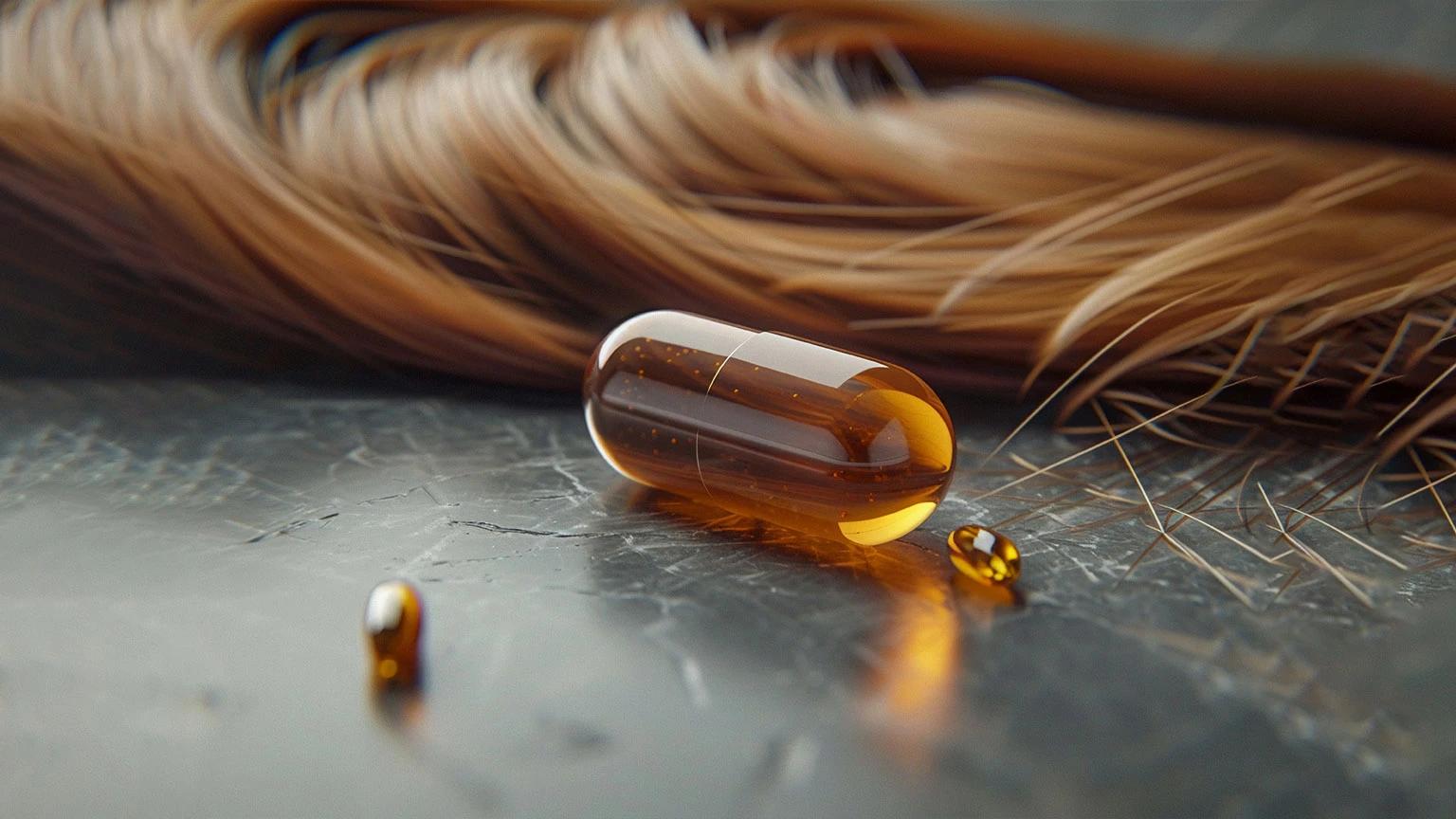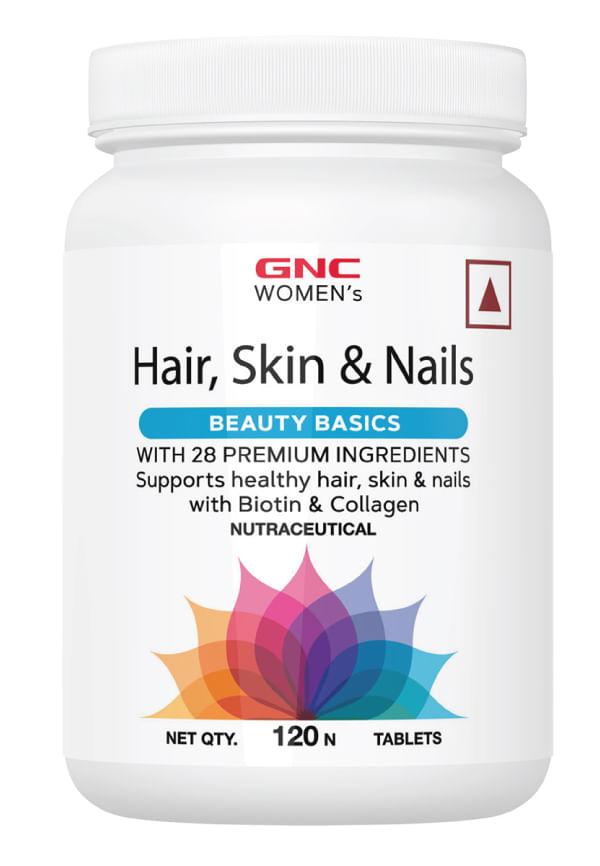9 Vitamin Tablets for Hair Growth You Need to Try


Let's be real—we've all been there. Staring at the mirror, wondering why our hair isn't giving what it's supposed to give. Whether it's thinning, breakage, or just slow growth, hair struggles are proper universal. The good news? Vitamin tablets for hair growth might just be the game-changer your locks have been waiting for. With countless options flooding the market, finding the right hair vitamins can feel overwhelming. That's why we've curated this list of 9 vitamin tablets that could transform your hair journey from frustrating to fabulous.
Your hair follicles are basically tiny factories working around the clock, and like any good factory, they need the right fuel to function properly. Hair growth supplements provide essential nutrients that your diet might be missing, supporting everything from follicle health to strand strength.
Think of it this way—your hair grows about half an inch per month on average, but that process requires a steady supply of vitamins, minerals, and proteins. When you're deficient in key nutrients, your hair follicles go into survival mode, prioritising essential bodily functions over hair growth. That's where hair nourishment tablets come in, filling those nutritional gaps and giving your follicles the support they need to thrive.
 200ml
200mlKorean Rice Water & Collagen Advanced Damage Repair Conditioner
Hair follicle vitamins work by improving blood circulation to the scalp, providing building blocks for keratin production, and protecting against oxidative stress that can damage hair cells. It's not magic—it's science working in your favour.
Ready to discover which supplements deserve a spot in your daily routine? Here are nine vitamin tablets that have earned serious credibility in the hair growth game. Each brings something unique to the table, so you can pick what fits your specific needs.
Biotin for hair growth is probably the most talked-about vitamin in hair circles, and for good reason. This B-vitamin is essential for keratin production—the protein that makes up your hair structure. Most biotin supplements come in doses ranging from 1,000 to 10,000 mcg, though many experts suggest starting with lower doses to see how your body responds.
 Combo
ComboFresh Face & Floral Mist Kit: Eau De Parfum Bloom + Pore Minimizing Sunscreen SPF 70 PA++++ Face Gel
Here's something that might surprise you—vitamin D deficiency is linked to various types of hair loss, including alopecia areata. These tablets help create new hair follicles and can be particularly beneficial if you're not getting enough sun exposure. The recommended daily dose typically ranges from 1,000 to 4,000 IU.
Vitamin A supports cell growth, including hair cells, and helps produce sebum—your scalp's natural moisturiser. However, there's a catch: too much vitamin A can actually cause hair loss, so stick to recommended doses. Look for supplements providing around 900 mcg for men and 700 mcg for women.
 Combo
ComboArgan Oil For Dry, Frizzy Hair| Pack Of 2
Your hair needs collagen for strength, and vitamin C is crucial for collagen production. Plus, its antioxidant properties protect against free radical damage that can age your hair follicles. Vitamins for stronger hair often include vitamin C as a key ingredient, typically in doses of 65-90 mg daily.
Think of vitamin E as your scalp's best friend. It improves blood circulation to the hair follicles and provides antioxidant protection. Studies have shown that people taking vitamin E supplements experienced a 34.5% increase in hair growth compared to the placebo group.
Folic acid supports cell division, which is essential for hair growth. It works particularly well when combined with other B vitamins. Most hair health capsules include folic acid in doses of 400-800 mcg, which aligns with general health recommendations.
 90 N
90 NAdvanced Hair Growth Actives | Anti-Thinning Hair Formula for Women
Iron deficiency is one of the most common causes of hair loss, especially in women. Iron helps red blood cells carry oxygen to your hair follicles. If you suspect iron deficiency, get tested first—too much iron can be harmful. Typical doses range from 18-27 mg daily for women.
Zinc plays a crucial role in protein synthesis and hair tissue growth. It also helps keep the oil glands around hair follicles working properly. Look for supplements providing 8-11 mg of zinc daily, as higher doses might interfere with copper absorption.
 30 ml
30 mlHair Growth Serum
Sometimes the best approach is comprehensive. Hair growth pills that combine multiple nutrients can address various deficiencies simultaneously. Look for formulas containing biotin, vitamins A, C, D, E, plus iron, zinc, and selenium for complete hair nourishment.
Picking the perfect supplement isn't a one-size-fits-all situation. Your age, diet, lifestyle, and existing health conditions all play a role in determining what your hair needs most. If you're vegetarian or vegan, you might be more prone to iron or B12 deficiencies. If you're over 50, vitamin D absorption might be less efficient.
Consider getting blood tests to identify specific deficiencies before starting any hair growth vitamin regimen. This way, you're not guessing—you're targeting exactly what your body lacks. Also think about your current diet. If you're already eating plenty of biotin-rich foods like eggs and nuts, you might not need high-dose biotin supplements.
 120 Gummies
120 GummiesBiotin Hair Gummies
Always chat with a healthcare provider before starting new supplements, especially if you're taking medications or have health conditions. They can help you avoid interactions and ensure you're taking appropriate doses.
Taking natural hair growth vitamins isn't just about popping a pill and waiting for miraculous results. Consistency is key—most people need to take supplements for at least 3-6 months to see noticeable changes in hair growth and quality.
Timing matters too. Some vitamins are better absorbed with food, while others work best on an empty stomach. Fat-soluble vitamins (A, D, E, K) need to be taken with meals containing healthy fats for optimal absorption. Water-soluble vitamins like biotin and vitamin C can be taken anytime, though spreading doses throughout the day might improve absorption.
 60 Capsules
60 CapsulesOZiva Plant Based Hair Vitamins | Hair Supplement For Growth & Hair Fall Control (60 Capsules)
Supplements work best when combined with a healthy lifestyle. Staying hydrated, managing stress, getting enough sleep, and eating a balanced diet all contribute to hair health. Think of vitamins as supporting actors, not the main character in your hair growth story.
While most hair vitamins are generally safe, some people experience side effects. Biotin supplements might cause skin breakouts initially, though this usually resolves as your body adjusts. High doses of vitamin A can cause nausea and even hair loss—ironic, right?
Iron supplements often cause stomach upset, constipation, or nausea. Taking them with vitamin C can improve absorption and reduce some side effects. If you experience persistent side effects, it's worth adjusting doses or trying different brands.
 120 Tablets
120 TabletsWomen's Hair, Skin & Nails - For Stronger Hair, Clearer Skin, and Healthier Nails
If you notice unusual symptoms like severe nausea, skin changes, or ironically, increased hair loss, stop the supplements and consult your healthcare provider. Sometimes less is more when it comes to hair vitamins.
Not everyone wants to rely solely on supplements, and that's completely valid. Many foods naturally contain hair-boosting nutrients. Eggs provide biotin and protein, spinach offers iron and folate, and fatty fish deliver vitamin D and omega-3s.
Nuts and seeds are particularly brilliant for hair health. Almonds provide vitamin E, pumpkin seeds offer zinc, and sunflower seeds contain both vitamin E and selenium. Creating a diet rich in these foods can complement or sometimes even replace certain supplements.
 125 gm
125 gmPlant Based Biotin for hair growth 10000mcg+ with Amla - Biotin Lemon
Herbs like saw palmetto, horsetail extract, and nettle have traditional uses for hair health. While research is still developing, some people find these natural options gentler than synthetic vitamins.
Whether you're exploring vitamin tablets or natural alternatives, platforms like Smytten make it easier to discover what works for your unique needs. As India's largest product discovery platform, Smytten connects you with trusted wellness and beauty brands, offering curated trial packs that let you explore hair growth supplements before committing to full-size purchases. With over 1,500 brands and the ability to try up to 8 minis for just ₹249, plus 100% cashback redeemable for future orders, you can experiment with different hair vitamins without the financial commitment.
Biotin (vitamin B7) is widely recognised for stimulating hair growth by supporting keratin production and improving the infrastructure of hair follicles. However, the best vitamin depends on your specific deficiencies—vitamin D, iron, and zinc are equally important for different aspects of hair health.
 60 Capsules
60 CapsulesPregnabest Pre-natal Multivitamin For Women
While biotin gets lots of attention, hair growth requires multiple vitamins working together. A combination of biotin, vitamin D, iron, zinc, and vitamins A, C, and E typically provides the most comprehensive support for healthy hair growth.
Most people notice changes in hair texture and strength within 6-8 weeks, but visible length growth typically takes 3-6 months of consistent use. Hair grows slowly, so patience is essential when starting a vitamin regimen.
Generally yes, but be careful about dosages. Some vitamins can interfere with others or cause toxicity in high amounts. A well-formulated multivitamin for hair is often safer than combining multiple single-nutrient supplements.
Most hair vitamins are safe when taken as directed, but some people experience digestive upset, skin breakouts (especially with biotin), or nausea. Starting with lower doses and taking vitamins with food can minimise side effects.
Results vary based on individual factors like genetics, underlying health conditions, diet, and the cause of hair issues. Vitamins work best for hair loss caused by nutritional deficiencies rather than genetic factors or hormonal imbalances.
Finding the right vitamin tablets for hair growth is quite personal—what works brilliantly for your best mate might not be your hair's cup of tea. The key is understanding your body's specific needs, whether that's boosting biotin levels, addressing iron deficiency, or taking a comprehensive approach with multivitamins.
Remember, healthy hair growth is a marathon, not a sprint. While these nine vitamin options offer solid starting points, combining them with a balanced diet, proper hair care, and realistic expectations will give you the best chance of success. With platforms like Smytten offering trial-sized wellness products from trusted brands, you can experiment with different supplements without the commitment, making your hair growth journey both affordable and rewarding. After all, why settle for 'maybe' when you can try it all and discover what truly works for your unique hair needs?